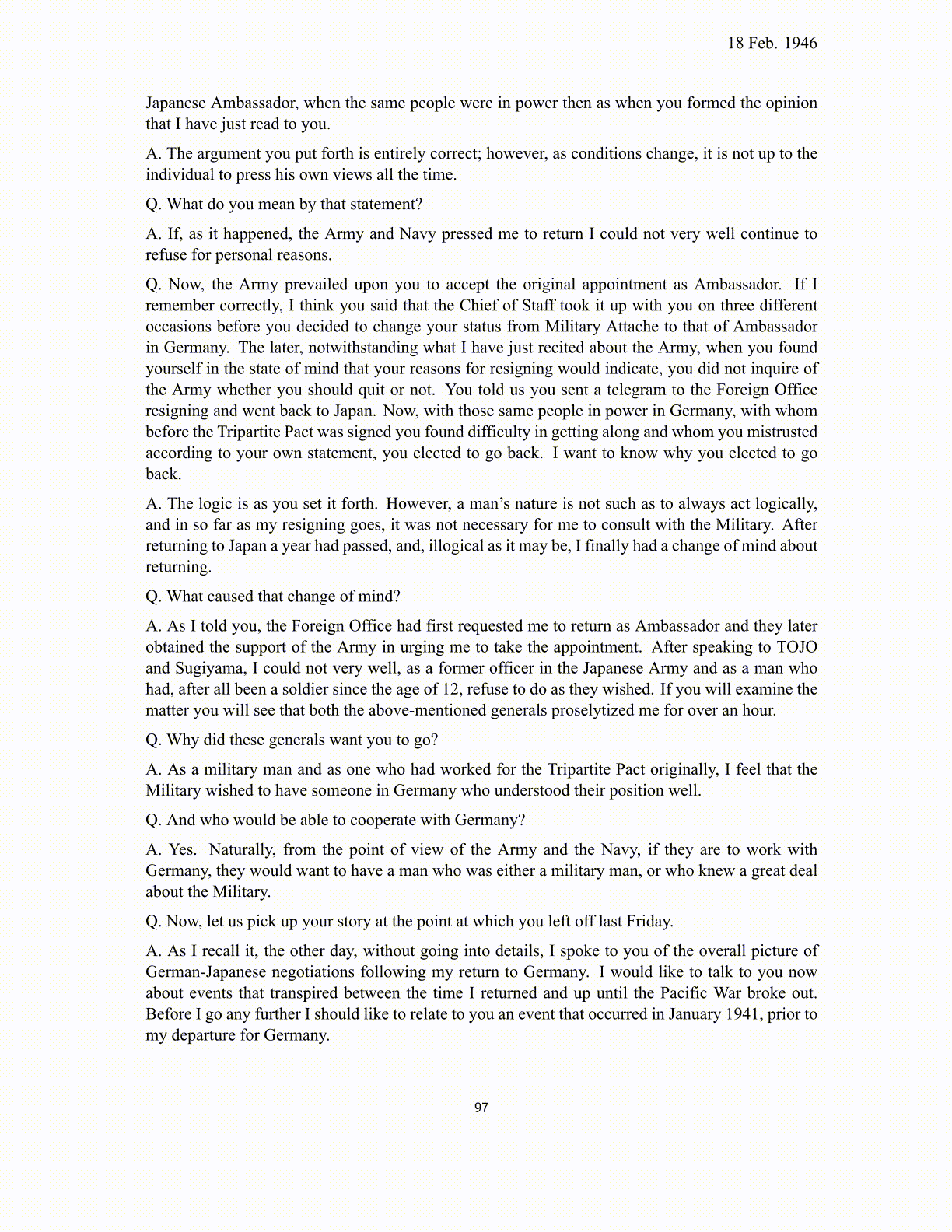
18 Feb. 1946 Japanese Ambassador, when the same people were in power then as when you formed the opinion that I have just read to you. A. The argument you put forth is entirely correct; however, as conditions change, it is not up to the individual to press his own views all the time. Q. What do you mean by that statement? A. If, as it happened, the Army and Navy pressed me to return I could not very well continue to refuse for personal reasons. Q. Now, the Army prevailed upon you to accept the original appointment as Ambassador. If I remember correctly, I think you said that the Chief of Staff took it up with you on three different occasions before you decided to change your status from Military Attache to that of Ambassador in Germany. The later, notwithstanding what I have just recited about the Army, when you found yourself in the state of mind that your reasons for resigning would indicate, you did not inquire of the Army whether you should quit or not. You told us you sent a telegram to the Foreign Office resigning and went back to Japan. Now, with those same people in power in Germany, with whom before the Tripartite Pact was signed you found difficulty in getting along and whom you mistrusted according to your own statement, you elected to go back. I want to know why you elected to go back. A. The logic is as you set it forth. However, a man’s nature is not such as to always act logically, and in so far as my resigning goes, it was not necessary for me to consult with the Military. After returning to Japan a year had passed, and, illogical as it may be, I finally had a change of mind about returning. Q. What caused that change of mind? A. As I told you, the Foreign Office had first requested me to return as Ambassador and they later obtained the support of the Army in urging me to take the appointment. After speaking to TOJO and Sugiyama, I could not very well, as a former officer in the Japanese Army and as a man who had, after all been a soldier since the age of 12, refuse to do as they wished. If you will examine the matter you will see that both the above-mentioned generals proselytized me for over an hour. Q. Why did these generals want you to go? A. As a military man and as one who had worked for the Tripartite Pact originally, I feel that the Military wished to have someone in Germany who understood their position well. Q. And who would be able to cooperate with Germany? A. Yes. Naturally, from the point of view of the Army and the Navy, if they are to work with Germany, they would want to have a man who was either a military man, or who knew a great deal about the Military. Q. Now, let us pick up your story at the point at which you left off last Friday. A. As I recall it, the other day, without going into details, I spoke to you of the overall picture of German-Japanese negotiations following my return to Germany. I would like to talk to you now about events that transpired between the time I returned and up until the Pacific War broke out. Before I go any further I should like to relate to you an event that occurred in January 1941, prior to my departure for Germany. 97